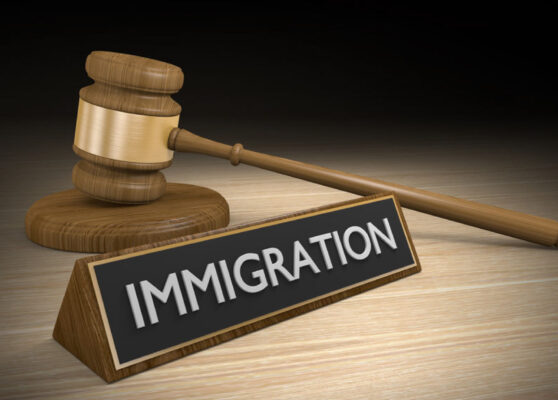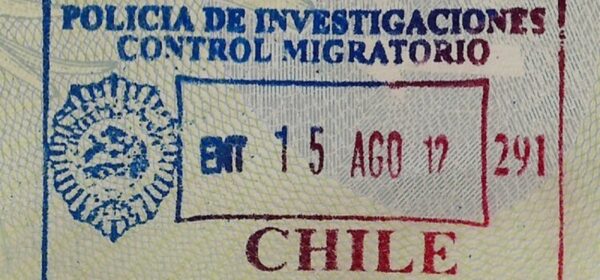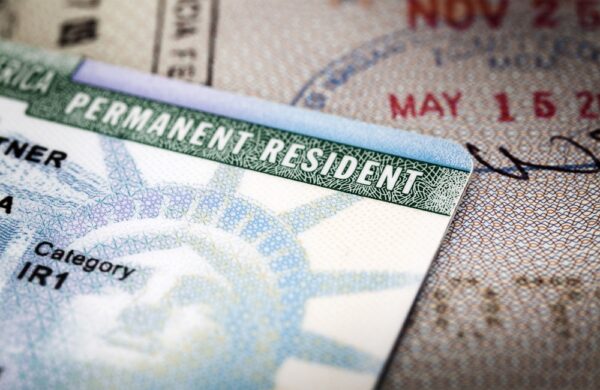Immigration is an integral part of any country. It shapes countries, cultures, and economies. Many people from different backgrounds have moved across borders in search of greener pastures, better work opportunities, or a new life. Whether it's crossing state lines or international borders, going through the right immigration process is important. Now, what are Immigration Violations while crossing those borders?
Just like how rules and regulations govern almost everything, immigration also comes with its own set of rules. This leads us to the question, “What are immigration violations?” Different immigration policies and rules apply to different countries. When someone violates these rules, it's called an immigration violation.
If you plan on leaving your country of citizenship for another country, it's important to understand what an immigration violation is. You need to know what an immigration violation is so you can avoid it and the immigration consequences that come with it.
So, what exactly are immigration violations? Why do they matter, and how are they addressed? I will answer these questions in detail and explore different types of immigration violations and how they are handled.
What are the Types of Immigration Violations?
An immigration violation occurs when someone breaks the rules set by a country for entering, staying, or working there. It could be sneaking across the border, overstaying a visa, or working without the right paperwork. Basically, it's anything that goes against the legal process of moving to or staying in a country.

Here are the most common types of immigration violations.
1. Illegal Entry
For foreign nationals, the most common violation type is improper entry or illegal reentry into a country that is not your country of residence. Think of it like sneaking into a party you didn't get an invitation to, and now you're trying not to get caught. In immigration terms, this means crossing a country's borders as a Foreign National by boycotting immigration officials without going through the legal procedures, such as applying for a visa or receiving permission from border or immigration officers.
Illegal entry is a criminal offense that involves crossing national borders without proper documentation while evading border patrol. In the United States, for example, individuals who cross the U.S.-Mexico border without inspection by immigration officers are classified as immigration violators. This can involve physical crossings by land, sea, or even air, where individuals evade checkpoints or sneak past border patrol.
There are a number of reasons why people resort to unlawful entry. It could be as a result of war, unrest, persecution, or natural disasters. Others are looking for better economic opportunities but are unable to secure legal entry. In some cases, unlawful entry might seem like the only option due to strict visa or green card application procedures or an urgent need to escape dangerous conditions.
2. Overstaying After Visa Expiration
While illegal entry is often the most discussed form of immigration violation, overstaying a visa is another common violation and is often overlooked. When a foreign National enters a country legally on a valid visa or nonimmigrant visa but stays longer than permitted, they are violating immigration laws.
Visas come with strict timelines. Whether it's a student visa, tourist visa, or work permit, each one has a designated expiration date. Overstaying your current visa is one of the most common immigration violations, especially in countries that attract a high number of tourists and temporary workers. In the United States, for example, the Department of Homeland Security estimates that hundreds of thousands of visitors overstay their visas each year.
Overstays can happen for many reasons. Sometimes, it's a simple case of misunderstanding the visa's rules, while in other cases, individuals may overstay because their situation changes due to finding a job or starting a family. There's also the possibility that there's a delay from the immigration office during the process of applying for a renewal or extension of the visa or a delay in the green card application.
3. Fraudulent Documentation
One of the common immigration violations is using false or fraudulent documents, which is a bad and risky thing to do. This can include forged passports, stolen visas, or other types of falsified documentation that enable someone to enter or remain in a country illegally.
Fake documents can be really well-made, with groups creating convincing forgeries. These groups often take advantage of people who are desperate to immigrate, charging them a lot of money for fake papers. Sometimes, people might also use someone else's identity or change their documents to stay longer than allowed.
What makes fraudulent documentation especially dangerous is its potential to undermine the entire immigration system and pose a risk to national security. When the integrity of documents such as passports, visas, and work permits is compromised, authorities struggle to ensure that only individuals with legitimate claims and immigration status enter or remain in the country.
4. Illegal Employment
Seeking better employment is one of the top reasons people migrate to other countries. However, working without a lawful immigration status is usually associated with the urgency in which people are looking for jobs. Many immigrants enter a country with the intent of finding work, but not all of them have the proper visa or work permit to do so. In many cases, they may be lured into jobs that don't require legal status, such as working in agriculture, construction, or the service industry.
Illegal employment can happen in several ways. Some individuals enter a country on a tourist or student visa and then take up employment without applying for the appropriate work visa. Others might cross the border illegally or overstay their visa, then work undercover for employers willing to pay cash wages to undocumented workers.
The reason illegal employment is so common is because there is a high demand for cheap labor. Many employers are willing to exploit the vulnerabilities of undocumented workers. For the workers themselves, the risks are high; they often face unsafe working conditions and low pay.
5. Human Trafficking and Smuggling
From the words human trafficking and smuggling, you should have an idea of how bad that sounds. Human trafficking and smuggling are among the most serious and dangerous forms of violation of immigration laws. These criminal escapades are based on exploiting vulnerable individuals, most times leading to tragic outcomes.
Human smuggling involves helping foreign nationals with improper immigration status cross borders illegally, usually for a fee. Smugglers might transport individuals across dangerous terrain or through hidden routes. Illegally entering the country through a dangerous path is a life risk, and in many cases, some individuals might not even get to their destination.
Human trafficking, on the other hand, involves the exploitation of individuals, often through force, fraud, or coercion. Victims of human trafficking are usually forced into labor, prostitution, or other forms of exploitation. Not only is human trafficking an immigration violation, but it's also a human rights violation, which is 2 offenses in one.
Consequences of Immigration Violations
There's a lot of peace of mind that comes with having a legal immigration status. Violating immigration laws is a criminal offense that comes with serious immigration consequences. Depending on the gravity of an offense, these consequences can lead to voluntary returns, cutting family ties, and even leaving a criminal history on their record.
Let's see some of the impacts of immigration violations.
1. Legal Penalties
The most immediate consequence of immigration violations is the legal penalty. This can range from fines, voluntary departures to imprisonment, but the most common penalty is deportation. Deportation means forcibly removing an individual from a country and returning them to their country of origin. In many cases, individuals who are deported also face bans on re-entry, which can last several years or can be permanent.
Deportation can be a devastating experience, especially for individuals who have built a life in the country already. Nothing beats a lawful immigration status and a lawful entry. Deportation can cause families to be separated, homes lost, and jobs taken away, which is not a favorable outcome.
In some cases, individuals caught violating immigration laws may be imprisoned, leading to a criminal history, especially if they are involved in criminal activities like human smuggling or document fraud. Imprisonment can range from a few months to several years, depending on the severity of the offense.
2. Social and Economic Impacts
The consequences of immigration violations aren't just legal; they can also have wide-ranging social and economic impacts. A shady immigration history, or being in violation of immigration laws can lead to living in constant fear of being caught. This often limits access to basic services like good healthcare, education, and housing. Without legal status, it's hard to rent an apartment, enroll in school, or even open a bank account.
Many undocumented immigrants live in the shadows, working in low-paying, often exploitative jobs with little protection from abuse or mistreatment. The economic impact on a country is another concern. In countries with large undocumented populations, the strain on public safety resources can become a big issue.
3. Family Separation and Trauma
One of the most heartbreaking consequences of immigration violations is family separation. This is particularly common in cases where one member of a family is deported while others remain in the country legally. Children, especially, suffer when a parent is suddenly removed from their lives. In some cases, children born in a host country like the United States may remain citizens of that country. At the same time, their parents face deportation, creating complex legal and emotional situations.
How Are Immigration Violations Handled?
So, what happens when someone is caught violating immigration laws? Different countries have different systems in place for immigration violators, but the process often follows a similar path.
1. Immigration Court and Hearing
Oftentimes, immigration violations are handled by giving the violator the right to a hearing in an immigration court. Any immigration violator has the legal option of getting an immigration attorney. The immigration court hears their case and decides whether they should be deported, allowed to leave voluntarily, fined, or permitted to stay in the country under certain conditions.
For instance, the United state immigration court system deals with many cases each year, and the process can be long and complicated. People often wait months or even years for their cases to be heard, and during that time, they might be in detention or released on bail, which is an alternative to detention. In court, individuals can argue their reasons for staying or apply for asylum or refugee status. However, without good legal help, it can be tough to make a strong case as an immigration violator.
2. Immigration Detention
Immigration detention is a reality for many people caught violating immigration laws. Violators are held while authorities sort out their immigration status or await deportation.
Being in detention centers is not all that conducive as there are reports of cramped, unsanitary conditions, especially for children. Detention can be emotionally devastating for families, separating loved ones and making it harder for individuals to fight their case. On the bright side, human rights groups have called for reforms to improve these conditions.
3. Rehabilitation
Despite the serious consequences of immigration violations, some individuals are able to find pathways to lawful immigration status, depending on the country's laws and their circumstances. Various programs, legal reforms, and visa options can sometimes provide a lifeline to those facing deportation.
In the U.S., the Deferred Action for Childhood Arrivals (DACA) program helps immigrants who came as children by giving them temporary protection from deportation while giving them legal opportunities to work. Other countries offer amnesty or create special visas to address labor shortages, allowing undocumented workers to legalize their status.
How do Immigration Authorities Prevent Immigration Violations?
Preventing immigration violations requires different approaches. Countries around the world have implemented various strategies to reduce unlawful entry, visa overstays, and other violations.
1. Border Security Measures
Strengthening border security is a common way to prevent unlawful entry, involving physical barriers like walls and advanced technology like biometric scanners. Countries like the U.S. have invested heavily in these measures to make crossing undetected harder.
2. Visa Reform
A big part of preventing immigration violations is making it easier for people to get visas legally. Many break the rules because the visa process is too confusing, tedious, costly, or slow. By simplifying the system and offering more visa options, like temporary work visas, countries can reduce the chances of people entering or staying illegally. Basically, fixing the visa system helps people follow immigration policies more easily.
3. Public Awareness and Education
Educating immigrants and the public about immigration laws can help reduce violations. Many people break the rules simply because they don't fully understand them. Clear information on visas, work permits, and legal processes can prevent accidental violations. Public awareness is also key for employers. Employers need to know the penalties for hiring undocumented workers. They also need to know the importance of verifying legal status to avoid illegal employment.
Conclusion
Immigration violation is a tricky issue with serious legal and personal consequences, like deportation or family separation. Countries have to enforce their laws and show compassion to those seeking a better life. Solutions like stronger borders, visa reform, and public awareness can help.
















